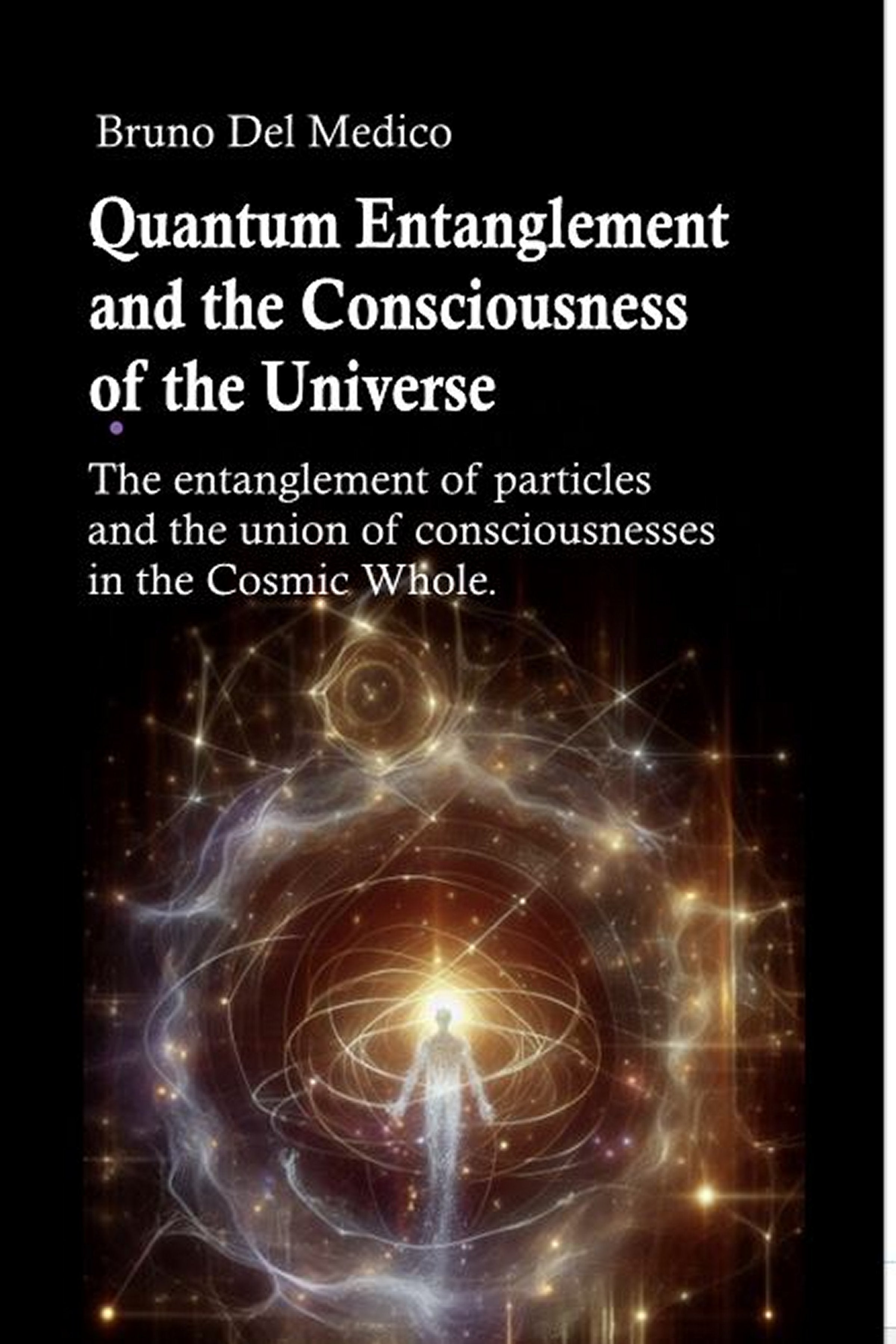
Giardino Quantico
Quantum Entanglement and the Consciousness of the Universe
Scegli le opzioni
Pages: 236 Format cm. 17x24.
Edizioni PensareDiverso. Copyright 2024
Weight 450 grams. (0.45 kg.). Maximum weight allowed for shipping to European countries: 2 kg. For Italy, 5 kg.
This book can be shipped to Italy and the European Community.
See: SHIPPING TIMES AND COSTS and PURCHASE METHODS.
Books printed in languages other than Italian may require up to 15-30 days for delivery.
The digital version (ebook) can be delivered anywhere free of charge.
You can also find this book in DIGITAL FORMAT (Ebook in PDF, Epub, Mobi).
Synopsis
The entanglement of particles and the union of consciousnesses in the Cosmic Whole.
This book, through a reflection on the extraordinary intersection of quantum physics and philosophy of science, offers an in-depth look at a current topic among science lovers. The topic is how quantum entanglement can affect such a complex and elusive concept as universal consciousness. Through a journey combining science and metaphysics, we will try to build a vision of the cosmos as an integrated and intelligent system.
Quantum entanglement represents a condition in which two or more particles become so interconnected that the state of each particle cannot be described independently of the states of the others, even when they are separated by great distances. It is as if, once these particles have interacted, they form a single unified entity that transcends physical separation.
To appreciate the extent of this, let us consider an emblematic example: imagine two electrons that have been in contact in the past. Once they separate and travel millions of kilometers apart, if one of them changes its spin state (a fundamental quantum property), the other electron, instantaneously, will change its spin in a complementary way, despite the vastness of the space separating them. This persistent correlation cannot be explained by classical knowledge of physics and has forced scientists to confront the oddities of quantum mechanics.
Another extraordinary example of quantum entanglement is Schrödinger's cat experiment, imagined by Austrian physicist Erwin Schrödinger. In this paradox, a cat locked in a box can be both alive and dead at the same time, until an observer opens the box and observes the cat, forcing the collapse of the particle wave function. This thought experiment illustrates how in quantum systems states can be simultaneous and superposed: it is not paradoxical that the cat is alive and dead at the same time. This is a shocking concept that collapses everyday intuitions.
What does this have to do with universal consciousness? Many well-known researchers and philosophers, from David Bohm to Roger Penrose, believe that quantum entanglement may provide clues to a hidden and deep level of universal connectedness. For if subatomic particles can remain connected regardless of distance, why not hypothesize that the same principle might apply to the cosmos as a whole, including consciousness? Perhaps, by unifying quantum concepts and philosophical speculation, we can attempt to glimpse a universe that is not only interconnected but also self-aware.
Some believe that entanglement could shed light on phenomena that currently elude us, from telepathy to other parapsychological phenomena. Although these hypotheses are still in the realm of unconfirmed theories, they highlight man's ambition to understand the universe not just as a collection of separate objects, but as an integrated, intelligent system.
